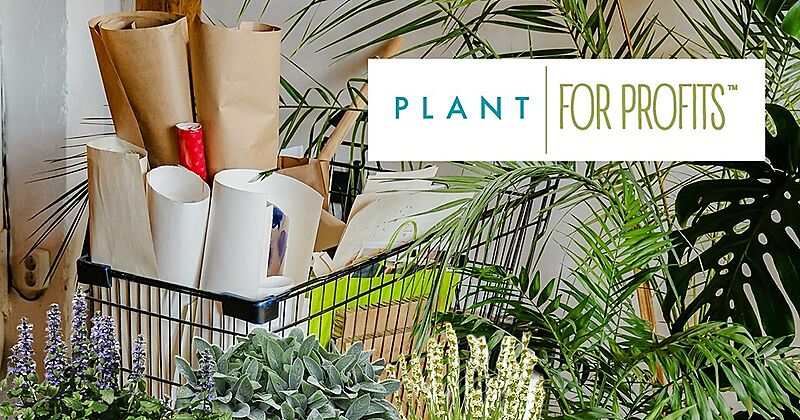Trying to Get Hired in the Horticulture Industry?

Plant For Profits Column, Leslie F. Halleck
What Types of Candidates Does the Horticulture Industry Favor?
This is a question I’m often asked by clients and students who are making a career transition into, or starting a business in, the green industry. That said, if you are someone who is already working in the horticulture industry, or may want to start a botanical business, this question is just as important for you to ask of yourself. Ideally, those of us hiring for horticulture and related businesses are looking for people with a good mix of both technical knowledge and hands-on experience. Bundle that with a passion for plants, an understanding and acceptance of doing physical work outside in weather or in a greenhouse, and a willingness to happily work directly with customers and you have yourself a win/win recruiting scenario.
Now, if you think about it, that’s a lot to ask. Which is why recruiting in the green industry can often be a tough prospect. We battle a perception of low value from consumers, which suppresses wages, which has led to less people wanting to enter horticulture as a degree or profession. However, it is a science-based profession that takes a lot of technical knowledge and accumulated experience (to do it right). It’s a special discipline and industry, and it takes a special kind of person to be both attracted to and thrive in it.
As someone who has worked their way up through a horticulture profession, hired and fired a lot in the green industry, and spent a substantial amount of time fine tuning my own recruiting strategies & tactics as well as helping many other companies do the same, I have a few key pieces of advice I can offer.
First off, the horticulture industry needs bookkeepers, accountants, project managers, writers, HR managers, marketers, and other non-plant based professionals too! This is something I discuss with many career transitioners who are worried about making the transition without the necessary plant knowledge or experience. A great first step is to look at how your existing profession and skills can directly translate over into a horticulture industry business, even if it’s not directly plant-related to start. When reviewing a resume from a career transitioner I would look for experience and skills they bring to the table that would be immediately transferable to my business needs, even if they lacked plant knowledge/qualifications. A smart move to make the transition may be to look for a job that’s similar to the one you’re already doing, just with a green industry company. That’s a great way to get your foot in the door as you continue your horticulture education and gain experience.
Personality matters: Over time, I learned to value personality and fit as much as any specific qualifications. You can help new hires learn on the job and grow their skills. You can't change their personality. In fact, I altogether quit writing job descriptions and instead started writing personality descriptions for positions I was listing. It transformed my recruiting process, made it much more efficient, and significantly improved the quality of applicants I received. If you as an applicant didn’t necessarily have enough horticulture education or experience, but your other background and personality seemed an excellent fit for the company and position, I was often willing to create a new role if possible, or invest in continuing horticultural education and training to get you moving in the right direction.
For someone who is horticulturally credentialed and experienced, personality still matters. All the horticultural knowledge in the world doesn’t help me if you are condescending or rude to customers and clients. In fact, in my day I had to fire some of the most plant-knowledgeable people I had because they just couldn’t work well with the team, with me, or with customers. If you’re a plant-person, be honest with yourself and your prospective employer about who you are and who you do and don’t want to work with. If you don’t really like working with customers and aren't genuinely interested in driving their success, then a sales representative role is going to be a terrible personality fit, even if you know the product like the back of your hand. But you might just be the next greatest greenhouse grower.
"In the horticulture industry the pathways to the profession have both contracted and expanded in different ways."
Technical knowledge matters: That said, some positions or types of businesses really require a fair amount of plant or other horticultural knowledge right out of the gate (or more specific educational or certification requirements) that, as a career transitioner, you can’t really get around. If the position I’m hiring for requires aptitude with technical details and horticultural experience, that will be a recruiting priority. Now, personality can still get you a long way, but it behooves you to do research about the type of job you want and then pursue the necessary education and credentials.
In the horticulture industry the pathways to the profession have both contracted and expanded in different ways. Over the last twenty to thirty years enrollment in horticulture degrees has decreased and many universities and community colleges ended their horticulture degree programs or closed their horticulture departments, leaving a significant void in the 2-year associates degree lane. During my retail years I hired a number of people with associates degrees in horticulture or landscape design and it was a solid pathway for many career transitioners.
However in the wake of the Covid Pandemic I’ve seen a resurgence of vocational hands-on training programs in horticulture and more Horticulture and Landscape Design Certificate programs being offered through university extension programs (such as UCLAx Horticulture and its Horticulture Certificate program for which I’m an instructor). As well as more in-depth online education and certificate opportunities. Whether you’re a career transplant, someone in the horticulture industry looking for growth, or someone interested in starting a horticulture business, I highly recommend starting with or obtaining an advance certificate as both an entry point into the industry, as well as ongoing career development.
If you’re someone in the industry who has the credentials and experience, then obtaining advanced professional certification
(which is not the same as an educational certificate), can be a big
differentiator for you when it comes to career advancement or commanding
better pay. Professional certifications on your resume definitely
helped me sort you into the good pile.
Volunteer work
also helps you stand out. If you’re not quite sure where you want to
land, or haven’t been able to land a job in the horticulture industry
yet, start with some volunteer work. Volunteering at a botanical garden,
a horticulture department at a zoo, a park or restoration project - you
name it - will provide you with valuable hands-on experience and
exposure to the field. It will also help you start to develop an
industry network who may be able to refer or recommend you for an actual
industry job at some point. When I saw specific relevant volunteer work
on an application, it made a difference.
If you'd like my weekly Plant for Profits column delivered to your inbox, you can sign up for my Plant For Profits horticulture business e-newsletter HERE. My monthly Halleck Horticultural newsletter delivers more plant- and gardening-focused news and opportunities.


